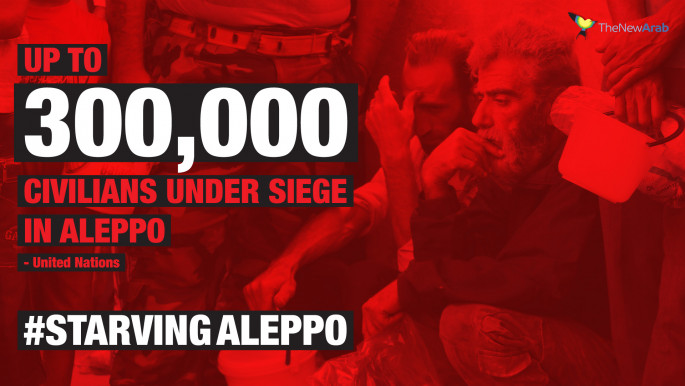First civilians begin leaving besieged parts of Aleppo
Civilians in the besieged and battered opposition-held east of Syria's Aleppo city have begun to leave through controversial "humanitarian corridors" to the government-held west.
Syrian regime media reported on Saturday that dozens of families left the besieged areas through the corridors and were received by military personnel.
"Aleppo Governorate made procedures and arrangements to receive the residents of the eastern neighbourhoods of the city and prepared makeshift centres equipped with all living and relief requirements," the report said.
The crossings are the first major movement of people from the besieged districts of the city after regime ally Russia announced on Thursday that passages would be opened for civilians and surrendering fighters.
The Britain-based Syrian Observatory for Human Rights also reported that "a number" of civilians had crossed into government territory.
Local pro-regime media said that until now 75 families had left the rebel-held east through the Salah al-Din corridor.
 |
|
| [Click to enlarge] |
Video footage posted on social media showed crowds of civilians, mostly women and children, walking under the watch of government troops and boarding buses.
Syrian state media said that "armed men from eastern neighbourhoods of Aleppo" turned themselves over to army soldiers in Salaheddin district, without specifying a number or giving further details.
Syria's President Bashar Assad has offered an amnesty to rebels who lay down their arms and surrender over the next three months.
On Friday, United Nation Syrian envoy Staffan de Mistura urged Russia to let the UN take charge of humanitarian corridors.
Mistura also echoed calls by UN humanitarian chief Stephen O'Brien for a 48-hour truce to allow life-saving supplies into the city's rebel-held east, which has been surrounded by pro-government forces since 17 July.
Agencies contributed to this report.





 Follow the Middle East's top stories in English at The New Arab on Google News
Follow the Middle East's top stories in English at The New Arab on Google News
![Israeli forces ordered bombed Gaza's Jabalia, ordering residents to leave [Getty]](/sites/default/files/styles/image_330x185/public/2176418030.jpeg?h=a5f2f23a&itok=_YGZaP1z)

